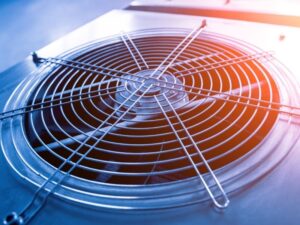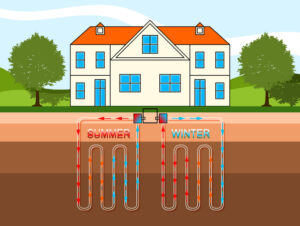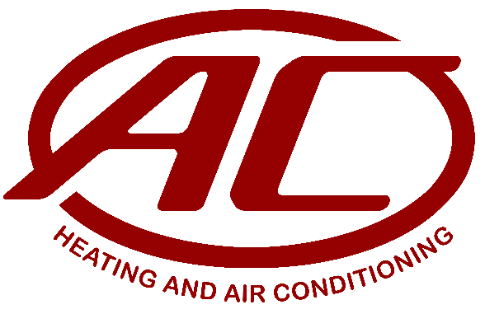Digging Deep Into Geothermal Heat Pumps
While you’re likely using a conventional split HVAC system to maintain comfort in your James Island, South Carolina, home, another type of HVAC system may better meet your needs — the geothermal heat pump. By using the reliable temperature of the earth, a geothermal heat pump provides energy-efficient comfort that cuts costs and improves air quality.
What Is a Geothermal Heat Pump?
Geothermal heat pumps are a variation of a heat pump that exchanges heat with the ground or water rather than the air. Most geothermal heat pumps use a tube system placed in the ground to move heat from your home to the ground outside. Thanks to the relatively stable temperature of the earth, it’s a reliable source of heat transfer no matter the season. During the summer, geothermal heat pumps draw heat from your home and place it in the earth outside, while in the winter, it draws heat from the warmer ground and brings it into the living space.
Other than the heat exchange with the earth, geothermal heat pumps function much like other heat pumps. Unlike split systems, heat pumps combine the heating and cooling systems into one unit. The refrigerant pumped through the underground network is pumped back to the indoor air handler, which uses fans to blow the heated or cooled air through your duct network.
What Are the Types of Geothermal Heat Pumps?
In order to accommodate the variety of home and landscape designs, geothermal heat pumps can be installed in different ways. There are four principal types of geothermal heat pumps designed to meet your individual needs:
- Closed Loop Horizontal: This type of geothermal heat pump lays refrigerant pipes horizontally beneath your yard, about 4 feet under the surface. This type of loop network tends to be the most cost-effective for homeowners.
- Closed Loop Vertical: Vertical networks are typically installed for larger geothermal systems like ones used in commercial buildings where there may be too little land to lay the pipes horizontally. While vertical systems will take less land, they will be drilled deeper (even into bedrock sometimes), which will generally cost more money.
- Closed Loop Pond/Lake: Like the earth, water at a certain depth remains a relatively constant temperature throughout the year. Geothermal systems can also use refrigerant loops in a body of water. If you have a body of water on your property, this may be the least expensive geothermal option. These coils are placed at least 8 feet below the surface of a water body that meets a certain quality, depth, and volume requirements.
- Open Loop: Rather than relying on refrigerant pumped through a closed-loop system, open-loop systems use water from a well or a body of water as the heat exchange fluid. This water is pumped directly into the geothermal system. After passing through the heat pump, the system pumps the water back to the ground either through surface discharge, a recharge well, or a standard well. While this option is affordable, it only works with a constant supply of relatively clean water.
What Are the Benefits?
Geothermal heat pumps boast a number of benefits that make them some of the most attractive heating and cooling options on the market. Perhaps their most significant benefit is the sheer energy efficiency of their operation. Since geothermal heat pumps can exchange heat with such reliable sources, they don’t have to draw as much power to generate heat or to cool air.
That efficiency leads to lower utility costs and to a longer system life span since the unit will experience less strain and generally require less maintenance. Add those savings to the potential government tax credits you can receive for using a geothermal system and your budget will be thanking you for years to come. Thanks to that energy efficiency, geothermal heat pumps are also some of the most environmentally friendly methods of maintaining comfort in your home.
In addition to ample savings and energy efficiency, geothermal systems also tend to be quieter to run, they are safer thanks to the lack of combustion and the associated risks of byproducts generated by that combustion, and they can also improve comfort and health with dehumidification and air purification technology.
Geothermal heating and cooling systems offer a unique and cost-effective method for heating and cooling your home. To have our team install a geothermal heat pump on your property, or to get more information, call AC Heating and Air Conditioning Services at (843) 277-9928.
Image provided by Bigstock
You May Also Like

Need a Heating Repair in Charleston, SC, to Restore Efficiency?
The gray morning fog rolls off Charleston Harbor as thermostats click on across the Lowcountry, signaling another chilly start. Inside your home,… Continue Reading Need a Heating Repair in Charleston, SC, to Restore Efficiency?…

How Coastal Air Impacts Your HVAC System in James Island, NC
The salt-kissed breezes rolling off the Atlantic and across James Island, NC, carry more than the promise of spectacular sunrises. They also… Continue Reading How Coastal Air Impacts Your HVAC System in James Island, NC…

Is Geothermal Heating Worth the Investment in Charleston, SC?
Imagine tapping into the Earth beneath your Charleston home to power your comfort year-round. No noisy compressors, no fossil fuels and energy… Continue Reading Is Geothermal Heating Worth the Investment in Charleston, SC?…
